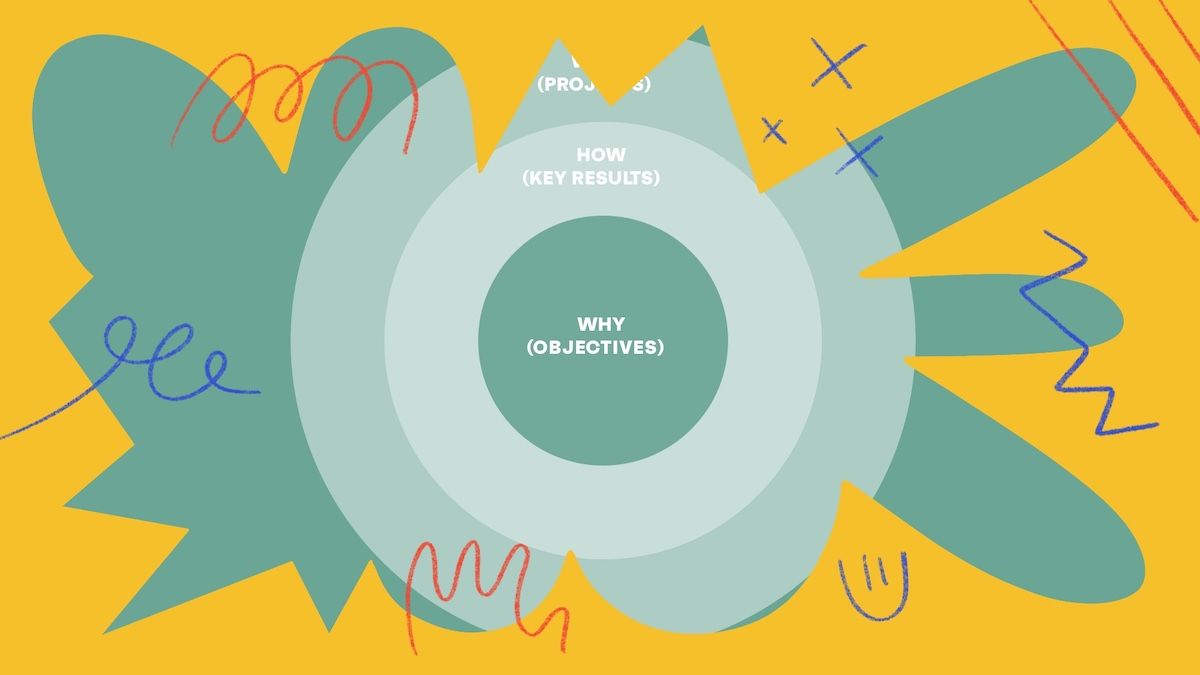Objectives vs. Key Results vs. Projects
Stop getting projects and OKRs mixed up with a simple set of questions inspired by Simon Sinek's "Start with Why".

Here's a quick tip to help write your OKRs and make sure that they don't get mixed with projects too much. It's based on Simon Sinek's "Start with Why", which is an excellent approach to think about impact first, and then look at how you can get there.
"Start with Why", the OKRs edition

"People don't buy what you do; they buy why you do it. And what you do simply proves what you believe."
- Simon Sinek
A common issue when adopting OKRs is that you get blurred lines between projects and goals. Sometimes you'll use a project as a Key Result; other times, you'll have metrics in your Objectives. There's a simple set of questions that can help you do a quick check, and the trick is to make sure you keep projects as part of the equation.
Objectives: Why are we coming to work?
Your objectives should help your team understand the bigger picture. You can't just tell people "let's build some features" and expect them to be motivated. Instead, you should start by explaining the value that you want to deliver at the end.
It should be simple and inspirational. You don't need to lock in on a solution yet — you need to describe the promised land.
Key Results: How are we going to measure progress?
Objectives are generally easy to understand. But Key Results are where things start to get murky. Sometimes a project will look like a KR, and a simple way to make the difference is to ask yourself if it's a measure of progress, or a way to make progress.
Say your Objective is to become a great swimmer. Then how would you consider the statement "swim 1km every day"? Is it a measure of progress? Or one of the things you can do to become a great swimmer?
It's a hard one and this kind of situation often happens in companies. It's worth taking the time to clarify things with your team, and the answer can simply be to change your Key Results. With our swimming example, we could switch to: "Swim 1km under X minutes" and "Swim Ykms without stopping". Both KRs are less ambiguous and give a clear sense of progression.
Projects: What will we do to make progress?
OKRs will provide you a North Star, but they won't tell you how you can get there. This is why it's essential to keep projects as part of the picture.
Projects are your best bets to make progress. They're the things that are most likely to move the needle. They're hypotheses, and this is also why you need to avoid treating them as Key Results.
Imagine if I one of my swimming KR was "Do 100 daily push-ups", with the assumption that it would develop my shoulder strength for swimming. By making it a KR, then I'm compelled to achieve that goal, even if I realize that it's not that helpful to swim longer or faster. But if I treat that as a project, then I give myself the flexibility to stop it if it's not producing positive results.
That's probably my best advice on OKRs: anything that you will add as a KR becomes compulsory. DO NOT TREAT HYPOTHESES AS KEY RESULTS. You'll put your team in a tight spot if they are wrong.
What's next?
I got a couple links if you want to go further. And don't hesitate to ask questions.
- Read Start with Why: How Great Leaders Inspire Everyone to Take Action.
- Check our OKRs guide for Startups and our tips for outcome-driven teams.
- Try Tability to automate focus and accountability

